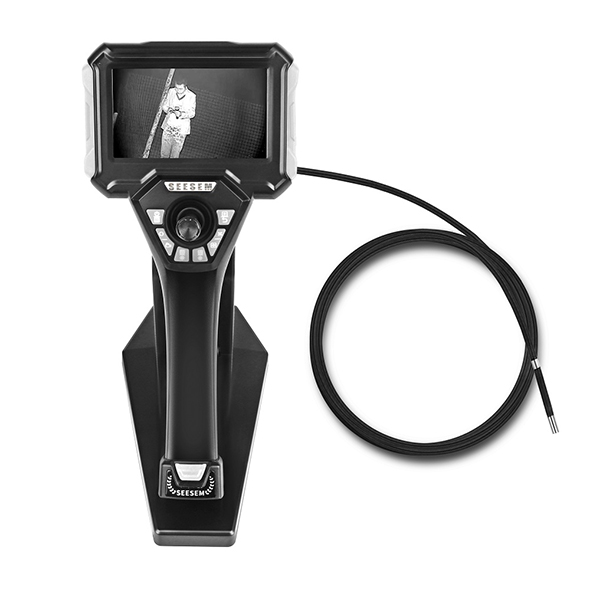Exploring the Special Applications of Videoscópio Industrialé
In the realm of modern industrial inspection and maintenance, the industrial videoscope has emerged as a technological marvel with a plethora of unique applications. With its advanced imaging capabilities and flexible design, this instrument has proven its worth in various specialized fields, revolutionizing the way inspections are carried out. Let’s delve into some of the special applications that make industrial videoscopes an indispensable tool across industries.
1. Aerospace Engineering: The aerospace industry demands rigorous inspections of aircraft engines, Blades de turbina, and critical components. Industrial videoscopes offer a non-destructive and efficient method to navigate through intricate structures, enabling engineers to assess wear and tear, detect defects, and ensure optimal performance.
2. Fabricação Automotiva: No setor automotivo, precision and efficiency are paramount. Videoscopes aid in quality control processes by examining engine internals, soldas, and hidden components that are otherwise difficult to access. This technology streamlines the inspection process, ensuring vehicles meet safety and performance standards.
3. Oil and Gas Exploration: Industrial videoscopes are utilized in the oil and gas industry to inspect pipelines, vasos de pressão, and refinery equipment. With their long, flexible insertion probes, videoscopes enable engineers to identify corrosion, rachaduras, and other potential issues without the need for costly dismantling or shutdowns.
4. Power Generation: For power plants, videoscopes are invaluable for assessing the condition of steam turbines, boilers, and generators. By providing visual access to hard-to-reach areas, videoscopes facilitate predictive maintenance, reducing downtime and optimizing power production.
5. Medical Equipment Inspection: The medical field relies on precise and reliable equipment. Industrial videoscopes are used to inspect the internal components of medical devices such as endoscopes and ultrasound machines. This ensures that the equipment is functioning accurately and adhering to quality standards.
6. Archaeological Research: Industrial videoscopes have also found a unique application in archaeology. They aid researchers in exploring ancient structures, artifacts, and archaeological sites that are difficult to access physically. Videoscopes help preserve historical sites by minimizing physical intrusion during the exploration process.
7. Rail and Transportation: Videoscopes are utilized to inspect the condition of railway tracks, bridges, and tunnels. This technology allows for efficient inspections of critical infrastructure, ensuring the safety and reliability of rail transportation networks.
Para concluir, the industrial videoscope’s adaptability and versatility have led to its incorporation into various specialized domains. From aerospace engineering to archaeological research, this tool has transformed the way professionals carry out inspections and maintenance tasks. À medida que a tecnologia continua a avançar, industrial videoscopes are likely to find even more innovative applications, further enhancing efficiency and safety across industries.


